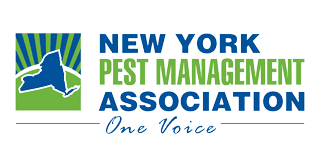There are over 3 thousand species of mosquitoes in the world, yet, of these, only a handful want to drink human blood. Mosquitoes have slender bodies, delicate legs, and a thin set of wings. Up close, one can see that mosquitoes are covered in scales. Mosquitoes have sharp mouth parts, which are used to drink nectar. However, females use their mouth parts for drinking blood to store enough protein to lay their eggs.
Mosquitoes lay their eggs in water. Mosquito larvae spend their lives in the water they hatched until they reach adulthood.
Mosquitoes: Friend Or Foe?
If you find yourself wondering what the purpose of mosquitoes in Albany is, you are not alone. Despite how annoying they are, mosquitoes play a vital role in the ecosystem. Mosquitoes are integral to the food chain, feeding many animals from fish, to birds, to frogs. Some species of mosquitoes even play a role in pollination. Additionally, according to the Smithsonian, only about 11.5 percent of mosquitoes transmit serious diseases like malaria. Mosquitoes are neither friend nor foe; they are simply part of the delicate ecosystem we all live within.
How Dangerous Are Mosquitoes?
As necessary as mosquitoes are for the ecosystem, no one wants mosquitoes in the house. We are all too familiar with the red, itchy bites left behind after a mosquito bite. Furthermore, the small percentage of disease-carrying mosquitoes can leave a significant impact. Diseases carried by mosquitoes include yellow fever, Zika virus, and dengue fever.
Yellow fever is a viral disease spread by mosquitoes and kills thousands of people every year. Symptoms include fever, muscle pains, and headaches. About 15 percent of people will experience kidney failure, which causes a yellowing of the skin, hence the name "yellow fever."
Zika virus can be transmitted via blood transfusions, sex, pregnancy, and infected mosquitoes. Zika causes mild, flu-like symptoms for most people who contract the illness.
Dengue fever is common among travelers returning from equatorial destinations such as the Caribbean, South America, and South Central Asia. Dengue is a viral disease spread via the bite of an infected mosquito. Symptoms include an itchy rash, fever, and vomiting. Severe cases of dengue are fatal without medical intervention.
Why DIY Mosquito Control Often Fails
Home remedies to get rid of mosquitoes often fail for several reasons. A single female mosquito can lay up to 200 eggs in her lifetime, making it hard to control the mosquito population around your home. Additionally, many do-it-yourself solutions cannot target all stages of mosquito lifecycles, from egg to larval, pupa, etc. Lastly, many store-bought chemicals can be harmful to your family, pets, and plants.
The best way to repel mosquitoes in Albany is through prevention. Homeowners can employ simple prevention, such as:
- Remove standing water around the property
- Run a fan outside if you will be outdoors in the evening
- Keep your yard trimmed and neat
- Maintain insect screens in windows and doors
Preventative measures can be the difference between a yard full of mosquitoes and a pleasant summer.
Professional Mosquito Control Buyers Guide
If you are already experiencing a mosquito infestation in your Albany home or yard, a professional can solve the problem. Pest control in Albany is best left to Absolute Pest Control. Absolute Pest Control has over three decades of experience treating your home safely and efficiently for all pests. We deliver safe and effective pest control services tailored to your home's unique needs. Give Absolute Pest Control a call today for peace of mind all year!








